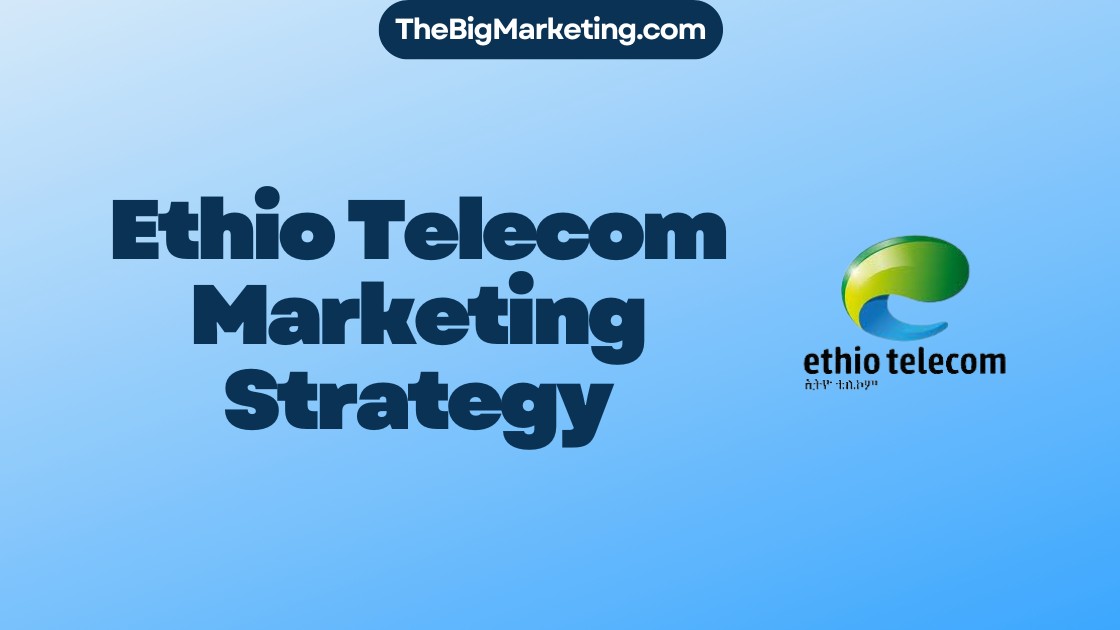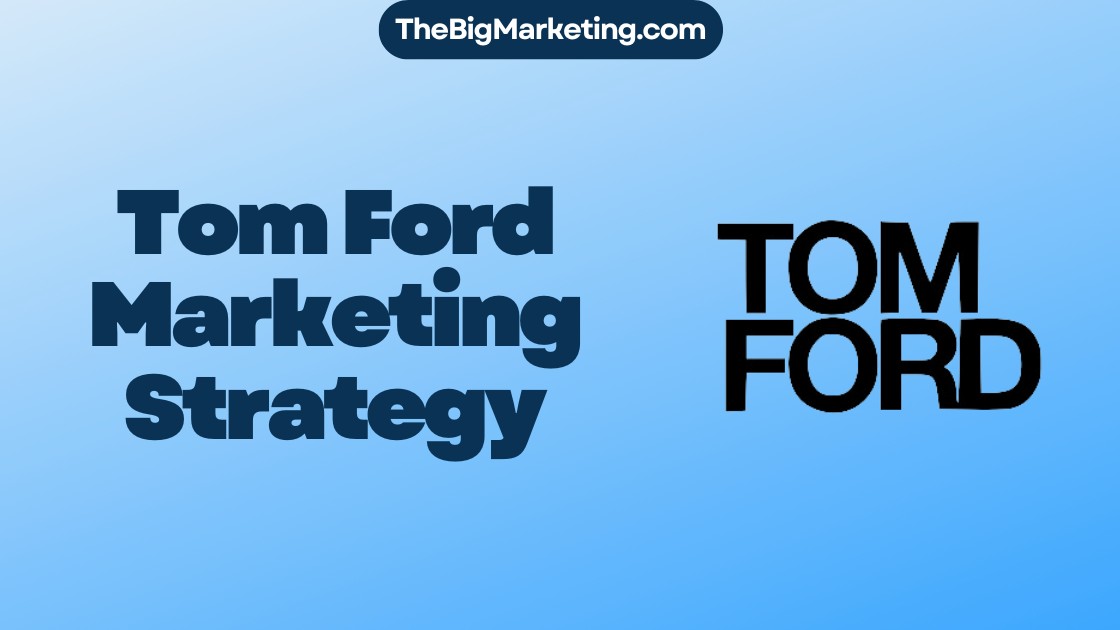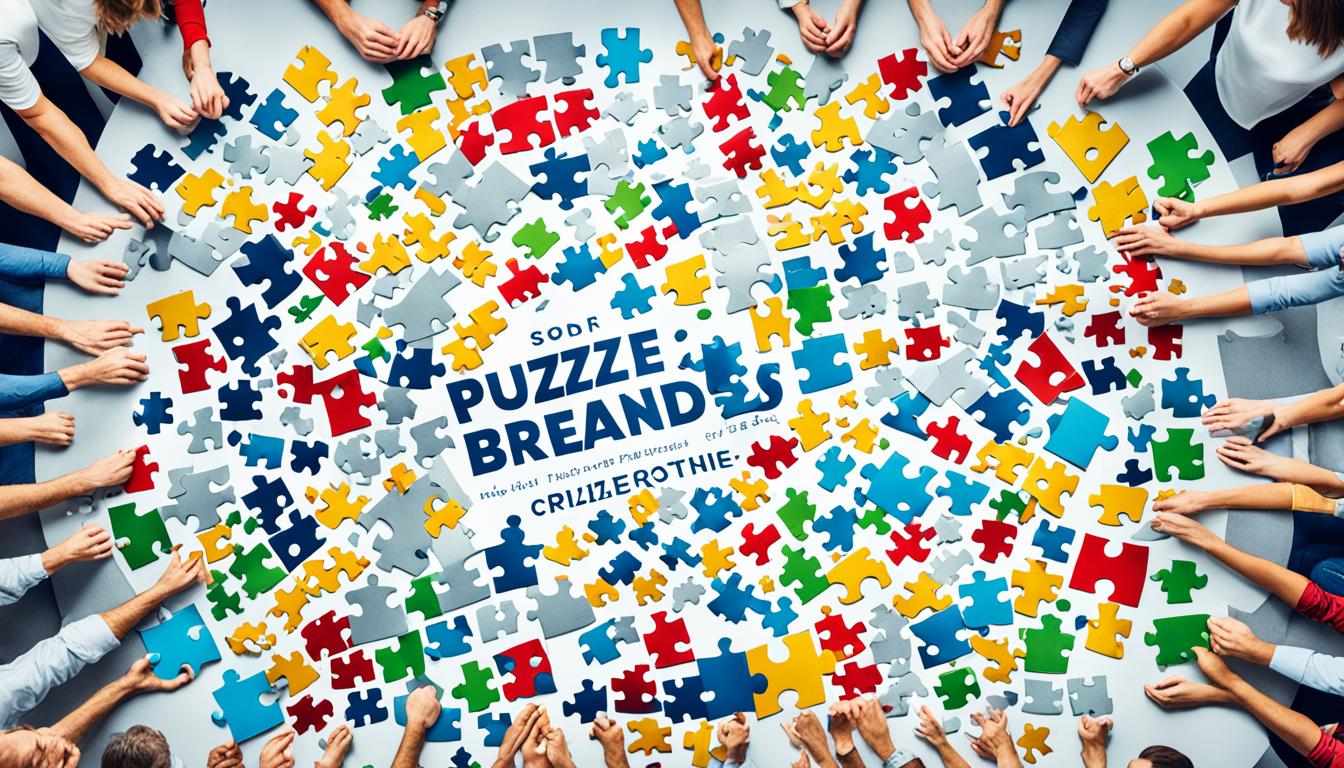Gucci, a renowned luxury fashion brand, has experienced remarkable growth and success in recent years, making it a key player in the industry. This can be attributed to the brand’s innovative and strategic marketing tactics, which have propelled Gucci to the forefront of the luxury market.
By adopting a digital-first approach and leveraging various marketing channels, Gucci has effectively positioned itself as a leader in the industry. The brand’s use of digital advertising and social media platforms has allowed it to create a strong brand presence and connect with its target audience.
Furthermore, Gucci’s competitive analysis has enabled the brand to identify market trends and stay ahead of the curve. This has allowed them to develop marketing strategies that resonate with their consumers and set them apart from their competitors.
Gucci’s omnichannel approach, spanning both online and offline platforms, has been instrumental in its success. The brand collaborates with influencers to reach a wider audience and enhance its brand positioning, ultimately driving engagement and sales.
Key Takeaways:
- Gucci’s success can be attributed to its innovative and strategic marketing tactics.
- The brand’s digital-first approach has helped establish a strong brand presence.
- Competitive analysis enables Gucci to stay ahead of market trends.
- Gucci’s omnichannel approach and influencer collaborations enhance brand positioning.
- The brand’s marketing strategies have contributed to its growth and success in the luxury market.
Gucci’s Personalized and Digital-First Approach
In today’s digital landscape, personalized marketing and a digital-first approach have become essential for brands to connect with their customers effectively. Gucci, a renowned luxury fashion brand, has embraced these strategies wholeheartedly, leveraging customer data and optimizing user experiences to drive conversions and foster repeat purchases.
Gucci’s personalized marketing efforts are anchored in the collection and analysis of customer data. By understanding their customers’ preferences and behaviors, Gucci can tailor marketing messages and recommendations to individual shoppers, creating a more relevant and engaging experience. This personalized approach not only increases the likelihood of conversions but also cultivates stronger customer loyalty and brand affinity.
With the rise of digital platforms and social media, Gucci has adopted a digital-first approach to reach and engage its target audience effectively. The brand’s website and mobile interface are meticulously designed to provide seamless and intuitive experiences for users. This ensures that customers can easily browse products, access relevant information, and make purchases with minimal friction.
Furthermore, Gucci actively leverages social media platforms like Instagram to generate organic hype and connect with its customers. Through captivating visuals and engaging content, Gucci cultivates a strong brand presence and encourages user interactions. By embracing digital platforms, Gucci maximizes its reach and amplifies its brand messaging.
Creating an Omnichannel Experience
Gucci’s dedication to a holistic and omnichannel approach allows customers to experience the brand seamlessly across various touchpoints. Whether interacting with Gucci online or visiting its physical stores, customers are offered a consistent and immersive experience that reinforces the brand’s identity and values.
The brand’s commitment to a personalized and digital-first approach is exemplified by its integration of innovative technologies in physical stores. For instance, Gucci stores feature interactive displays, digital catalogs, and personalized recommendations to enhance the in-store experience. By combining physical and digital elements, Gucci ensures a cohesive and engaging journey for customers.
Through its personalized marketing initiatives and digital-first approach, Gucci has successfully created a strong bond with its customers. By continuously optimizing user experiences, Gucci drives conversions and fosters repeat purchases, solidifying its position as a leader in the luxury fashion industry.
| Benefits of Gucci’s Personalized and Digital-First Approach | Description |
|---|---|
| Improved User Experience | Gucci’s focus on personalization ensures that customers have tailored experiences, resulting in greater satisfaction and engagement. |
| Higher Conversions | By leveraging customer data and analytics, Gucci customizes its marketing messages, increasing the likelihood of conversions. |
| Enhanced Customer Loyalty | Personalized marketing fosters stronger connections with customers, leading to increased loyalty and repeat purchases. |
| Amplified Brand Messaging | Gucci’s digital-first approach allows the brand to reach a wider audience and amplify its brand messaging through social media and digital platforms. |
Creativity and Innovation in Gucci’s Digital Marketing Campaigns
Gucci’s digital marketing campaigns are a testament to the brand’s commitment to creativity and innovation. By leveraging cutting-edge strategies and producing visually captivating content, Gucci has established itself as a leader in the world of digital marketing.
One of the key aspects of Gucci’s creative marketing approach is the development of innovative campaigns. Whether it’s through high-quality imagery, engaging videos, or interactive experiences, Gucci continuously pushes boundaries to create unique and memorable marketing materials.
Visual content plays a central role in Gucci’s digital marketing success. The brand’s campaigns are visually stunning, using a combination of striking visuals, tasteful aesthetics, and meticulous attention to detail. This visual appeal resonates with Gucci’s target audience, capturing their attention and leaving a lasting impression.
Moreover, Gucci’s digital marketing efforts are not just focused on aesthetics; they also play a crucial role in defining the brand’s identity. Each campaign serves as a reflection of Gucci’s values, personality, and distinctive style. Through thoughtful storytelling and compelling visuals, Gucci ensures its brand identity shines through in every digital interaction.
Social media advertising and influencer collaborations are instrumental in Gucci’s digital marketing strategy. The brand leverages popular social media platforms to generate buzz, increase visibility, and reach a wider audience. By collaborating with influencers who align with its brand values, Gucci can effectively target and engage with its desired demographic, further bolstering its online presence.
As Gucci continues to innovate and evolve its digital marketing campaigns, it solidifies its position as a trailblazer in the industry. By combining creativity, innovation, and strategic brand identity development, Gucci has created a digital marketing strategy that captivates and resonates with its audience.
The Influence of Creative Direction on Gucci’s Success
Gucci’s remarkable success in recent years can be attributed to the visionary creative direction of CEO Marco Bizzarri and Creative Director Alessandro Michele. Bizzarri’s unwavering focus on fostering a culture of creativity within the brand has been pivotal in driving Gucci’s growth and influence in the fashion industry.
Under the creative leadership of Alessandro Michele, Gucci has become a trendsetter, setting new standards for innovation and brand identity. Michele’s eclectic and vintage-inspired designs have captivated consumers worldwide, positioning Gucci as a leading force in the fashion industry.
What sets Gucci apart is its emphasis on inclusivity, celebrating diversity and individuality. Michele’s designs resonate with people from all backgrounds and age groups, ensuring Gucci’s relevance with a diverse audience. This commitment to inclusivity has greatly contributed to the brand’s continued success and popularity.
Gucci’s creative direction has enabled the brand to stand out from its competitors by pushing boundaries and redefining luxury fashion. Michele’s unique aesthetic has not only appealed to existing Gucci enthusiasts but has also attracted a new generation of fashion-forward customers.
With their bold and imaginative approach, Bizzarri and Michele have solidified Gucci’s position as a trendsetter, consistently setting new standards for creativity and craftsmanship in the fashion industry.
| Key Factors | Description |
|---|---|
| Creative Direction | The visionary leadership of CEO Marco Bizzarri and Creative Director Alessandro Michele drives Gucci’s success. |
| Trendsetting Designs | Alessandro Michele’s eclectic and vintage-inspired designs position Gucci as a fashion trendsetter. |
| Inclusivity and Diversity | Gucci’s commitment to inclusivity and appealing to a diverse audience has contributed to its success. |
| Redefining Luxury | Gucci’s creative direction pushes the boundaries and redefines luxury fashion in the industry. |
The Power of Gucci’s Visual Branding
Gucci’s visual branding is instrumental in defining its brand identity and creating a sense of luxury and exclusivity. The iconic double-G logo, which represents the brand’s name and founder, Guccio Gucci, has become an internationally recognized symbol of craftsmanship and prestige. The logo can be seen prominently displayed on Gucci’s products, evoking a sense of authenticity and heritage.
In addition to the iconic logo, Gucci incorporates trademark motifs, such as the diamanté pattern, into its visual branding. These motifs add a touch of elegance and sophistication to the brand’s designs, further reinforcing its luxury cachet. Whether it’s a handbag, a pair of shoes, or a piece of jewelry, Gucci’s trademark motifs serve as a visual testament to the brand’s attention to detail and commitment to quality.
Gucci strategically leverages its visual branding across various marketing channels. In print ads, the brand showcases its products in visually stunning and captivating ways, highlighting the exquisite craftsmanship and design. The use of bold colors, striking imagery, and carefully curated layouts create a powerful impact and leave a lasting impression on consumers.
Moreover, Gucci’s packaging is carefully designed to reflect the brand’s identity and elevate the overall customer experience. The brand’s products come in elegant boxes and bags, adorned with the iconic logo and trademark motifs. The packaging exudes a sense of luxury and sophistication, making the act of receiving and opening a Gucci product an exciting and memorable experience.
Gucci’s Visual Branding Elements
| Brand Identity Elements | Description |
|---|---|
| Iconic Logo | The double-G logo represents Gucci’s name and founder, symbolizing its heritage and craftsmanship. |
| Trademark Motifs | The diamanté pattern and other motifs add an element of elegance and sophistication to Gucci’s designs. |
| Print Ads | Visually stunning and captivating ads showcase Gucci’s products, highlighting their quality and design. |
| Packaging | Elegant boxes and bags adorned with the iconic logo and trademark motifs enhance the overall customer experience. |
Gucci’s visual branding not only conveys the brand’s luxury cachet but also attracts and resonates with consumers who aspire to own and be a part of the Gucci experience. By consistently incorporating brand elements such as the iconic logo and trademark motifs in its marketing materials and packaging, Gucci maintains a strong and cohesive brand identity that sets it apart from its competitors in the luxury fashion market.
Gucci’s Strategic Collaborations
Gucci’s success in the fashion industry can be attributed not only to its innovative marketing strategies but also to its strategic collaborations with other major luxury brands. By partnering with renowned designers and creators, Gucci has been able to expand its appeal to new audiences and further establish itself as a leader in luxury fashion.
These collaborations have allowed Gucci to create limited capsule collections that generate buzz and excitement in the fashion industry. These exclusive collections are often highly anticipated by fashion enthusiasts, and their limited availability adds to their desirability among consumers.
Through these collaborations, Gucci not only enhances its brand image but also gains a fresh perspective and creative input from the collaborating designers. This infusion of new ideas and aesthetics helps to keep the brand’s offerings diverse and relevant.
One notable collaboration for Gucci was the partnership with renowned Italian fashion house Versace. This collaboration brought together the iconic styles and design philosophies of both brands, resulting in a collection that showcased the best of Italian luxury fashion.
Not only do these collaborations create excitement among fashion enthusiasts, but they also provide an opportunity for Gucci to reach new audiences and expand its customer base. By collaborating with other luxury brands, Gucci taps into the existing customer bases of these brands, introducing its products to a whole new set of potential customers.
These strategic collaborations also serve as a platform for Gucci to showcase its commitment to creativity and innovation. By partnering with other influential brands, Gucci reinforces its position as a trendsetter and innovator in the fashion industry, solidifying its brand identity as a luxury brand that pushes boundaries and sets new trends.
Overall, Gucci’s strategic collaborations have played a vital role in the brand’s success. These partnerships have enabled Gucci to create limited capsule collections that generate excitement and appeal among consumers. By collaborating with renowned designers and luxury brands, Gucci expands its reach, strengthens its brand image, and solidifies its position as a leader in luxury fashion.
| Collaborations | Partnership Release Year |
|---|---|
| Gucci x Versace | 2020 |
| Gucci x Balenciaga | 2021 |
| Gucci x Dior | 2019 |
Experiential Retail and Influencer Marketing
Gucci, a renowned luxury fashion brand, is known for providing unparalleled luxury experiences to its customers. The brand goes beyond traditional shopping by investing heavily in creating immersive and experiential retail environments.
At Gucci’s flagship stores, customers are treated to a range of luxurious amenities that elevate the shopping experience. From elegant cocktail bars to live DJs, these flagship stores offer an exclusive and inviting atmosphere. Additionally, Gucci provides customization services, allowing customers to personalize their purchases and create unique pieces that reflect their individual style.
Moreover, Gucci has recognized the power of influencer marketing in reaching a wider audience and engaging with younger demographics. The brand strategically partners with high-profile influencers who embody its aspirational image and promote its products to their followers.
Influencer collaborations enable Gucci to leverage the influencers’ social media presence and expand its brand awareness. By associating with popular influencers, Gucci taps into their extensive fanbase and establishes a connection with younger consumers who idolize these influencers.
Through experiential retail and influencer marketing, Gucci is able to deliver a luxury retail experience that goes beyond shopping. The brand creates memorable moments for customers, allowing them to immerse themselves in the world of Gucci and feel a sense of exclusivity. These strategies also help Gucci expand its customer base and strengthen its position as a leader in the luxury fashion industry.
Gucci’s Digital Transformation
Gucci, one of the leading fashion and luxury brands, has undergone a remarkable digital transformation to adapt to the modern consumer landscape. Recognizing the significance of digital innovation, the brand has developed a robust eCommerce strategy to enhance its online presence and provide personalized experiences for its customers.
As part of its digital transformation, Gucci has revamped its eCommerce site, introducing features that cater to the needs and preferences of millennial consumers. The website now offers a convenient “find in-store” option, allowing customers to locate Gucci stores near them. This integration of online and offline channels enables a seamless shopping experience.
Gucci’s eCommerce site also prioritizes providing comprehensive product information and high-quality visuals, ensuring that customers can make informed purchase decisions. Moreover, the brand offers convenient services such as gift wrapping and enhanced customer service support to further enhance the online shopping experience.
The Importance of Personalized Online Experience
Central to Gucci’s digital strategy is the focus on delivering an authentic and luxurious online experience. The brand understands that personalization is key to engaging modern consumers, and therefore, it utilizes customer data and analytics to tailor recommendations and marketing messages to individual preferences.
By leveraging customer data, Gucci ensures that each online interaction is relevant and tailored to the customer’s unique preferences, increasing the likelihood of conversions and customer loyalty.
The Impact of Gucci’s Digital Transformation
Gucci’s digital transformation has been instrumental in strengthening its market position and connecting with millennial consumers. The brand’s enhanced eCommerce strategy and personalized online experience have allowed it to reach a wider audience and expand its customer base.
Gucci’s commitment to digital innovation has not only facilitated seamless online shopping but also solidified its reputation as a forward-thinking luxury brand. By embracing digital technologies and providing personalized experiences, Gucci has successfully adapted to the digital age while maintaining its status as a true fashion icon.
Gucci’s Success in the Luxury Market
Gucci’s marketing strategy has propelled the brand to remarkable success in the luxury market. With a strong focus on creativity and innovation, Gucci has solidified its position as one of the most valuable luxury brands, experiencing significant brand growth and increased revenue.
One of the key factors contributing to Gucci’s success is its ability to connect with younger consumers. By tapping into the preferences and desires of millennial and Gen Z audiences, Gucci has cultivated a strong consumer affinity and captured a new generation of luxury shoppers.
Gucci’s success can also be attributed to its adaptability and willingness to embrace changing times. The brand has effectively utilized collaborations with modern-day celebrities and influencers to stay relevant and resonate with a diverse consumer base. These strategic partnerships have not only boosted brand growth but also elevated Gucci’s popularity and desirability among consumers.
To visually showcase Gucci’s success in the luxury market, here is a table highlighting key growth metrics:
| Year | Revenue (in billions) | Brand Value (in millions) |
|---|---|---|
| 2017 | 4.33 | 12,700 |
| 2018 | 6.16 | 15,949 |
| 2019 | 8.17 | 17,626 |
| 2020 | 9.63 | 19,406 |
As evidenced by these figures, Gucci’s revenue and brand value have experienced steady growth over the past few years, solidifying its position as a dominant force in the luxury market.
Image: Gucci’s ability to succeed in the luxury market is a testament to its innovative marketing strategies and consumer-centric approach.
Conclusion
Gucci’s global marketing strategy has paved the way for the brand’s success in the luxury fashion industry. Through its personalized and digital-first approach, creative direction, strategic collaborations, visual branding, experiential marketing, and digital transformation, Gucci has redefined luxury and established itself as a trendsetter.
The brand’s ability to resonate with millennial consumers, engage a diverse audience, and create unique experiences has contributed to its continued growth and prominence in the luxury market. Gucci’s personalized marketing tactics and digital advertising have created a strong brand positioning, while its competitive analysis and understanding of luxury market trends have allowed the brand to stay ahead of the curve.
As Gucci continues to innovate and evolve its marketing strategies, it will undoubtedly maintain its position as a leader in the industry. With a strong emphasis on creativity, innovation, and customer-centricity, Gucci will continue to captivate consumers, set fashion trends, and solidify its status as one of the most iconic luxury fashion brands in the world.







